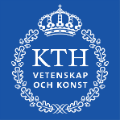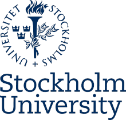Workshop 2021
Haruhiko Bito, Professor, UTokyo
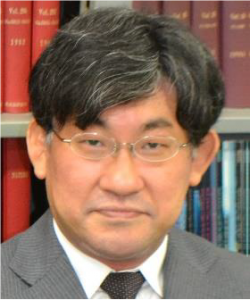
Dr. Bito is currently Professor and Chair of the Department of Neurochemistry, and also Chair of the Neurosciences Program at the University of Tokyo School of Medicine. The ambition of Dr. Bito’s laboratory is to go beyond just understanding the makeup of the synapses, and to tease apart the molecular, cellular and systems principles underlying activity-dependent changes in neuronal circuitry during learning and memory.
In particular, the Bito laboratory pioneered in deciphering the intricate and interactive relationship between the information encoded in the genome and the ongoing synaptic activity, and showed the critical role of CREB-Arc signaling in controlling long-term memory formation and maintenance of long-lasting changes within the brain.
Haruhiko Bito graduated from the University of Tokyo with an MD and a PhD in Biochemistry in 1993. After finishing a postdoc in Molecular and Cellular Physiology at Stanford as a HFSP long-term fellow, Dr. Bito started his own laboratory in Pharmacology at Kyoto University in 1997. He expanded his research group significantly, when he moved to the Department of Neurochemistry at the University of Tokyo in 2003. He is the Leading Investigator of a National Consortium Project on “Brain information dynamics underlying multi-area interconnectivity and parallel processing”.
Junichiro Shiomi, Professor, UTokyo
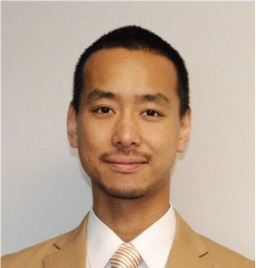
Junichiro Shiomi is Professor in Department of Mechanical Engineering, School of Engineering, the University of Tokyo (UTokyo). He received B.E. (1999) from Tohoku University, and Ph. D. (2004) from Royal Institute of Technology (KTH), Sweden. Leading the Thermal Energy Engineering Lab, he has been pursuing research to advance thermal management, waste heat recovery, and energy harvesting technologies based on nano-to-macro innovation in materials, structures, and systems.
Prof. Shiomi has been leading several projects including Core Research for Evolutional Science and Technology (JST-CREST), Precursory Research for Embryonic Science and Technology (JST-PRESTO), and New Energy and Industrial Technology Development Organization (NEDO) projects. He is Fellow of Japan Society of Mechanical Engineers and serves as associate editors of Applied Physics Express, Japanese Journal of Applied Physics, and Transactions of the Japan Society of Mechanical Engineers.
He is a recipient of the Zeldovich Medal from the Committee on Space Research, the Young Scientists’ Prize, the Commendation for Science and Technology by the Minister of Educational, Culture, Sports, Science and Technology, and the Academic award of Heat Transfer Society of Japan. He has been coordinators of the EU/Japan Interdisciplinary Global Mechanical Engineering Education (IGM) program, the Global Mechanical Engineer (GME) program between UTokyo and KTH, EPFL and Rice University, the Top Global University Project between UTokyo and Stockholm Universities.
Tsuguyuki Saito , Associate Professor, UTokyo
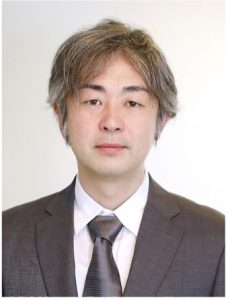
Tsuguyuki Saito is an Associate Professor at the Department of Biomaterial Sciences, Graduate School of Agricultural and Life Sciences, the University of Tokyo. He graduated from the University of Tokyo in 2003, and obtained a PhD from the same university in 2008 for his study on TEMPO-oxidation of cellulosic fibers. He has further developed this oxidation as a tool to produce cellulose nanofibers (CNF) from wood pulp in an energy-efficient way. For this discovery on CNF production, he was awarded Marcus Wallenberg Prize in 2015, and JSPS Prize in 2019. As of June 2021 the sum of times cited for his publications is approximately 15,000 citations (Web of Science), and his h-index is 56. He also worked as a visiting scientist with Prof. Lars A. Berglund at the Wallenberg Wood Science Center, KTH (2012-2013).
He is now leading a Japan Science and Technology Agency’s JST-Mirai Project for achieving the efficiency and additional values in CNF-based materials by exploiting the CNF potential, where three universities and four industrial companies participate.
Horacio Cabral, Associate Professor, UTokyo
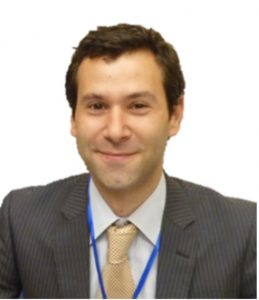
Dr. Cabral received his Ph.D. in Materials Engineering from The University of Tokyo in 2007 under the supervision of Prof. Kazunori Kataoka. Dr. Cabral was an Assistant Professor at the Center for Disease Biology and Integrative Medicine, Graduate School of Medicine, The University of Tokyo, until 2010, when he joined the Department of Bioengineering of The University of Tokyo as a Lecturer. In 2014, he was promoted to his current position.
Dr. Cabral’s major research interests relate to the development of nanomedicines for diagnosis and therapy, particularly systems directed to intractable cancers. He has made major influential achievements in the development of translatable polymeric nanocarriers. Particularly, his polymeric micelles targeting anticancer drugs to tumours have proceeded into human clinical studies, improving patients’ survival and reducing side effects. Moreover, he has accomplished seminal contributions in the understanding of the effect of nanocarrier design on activity, particularly through intratumoral and intracellular navigation. He has published more than 100 articles in refereed journals, including Nature Nanotechnology, Nature Reviews Clinical Oncology, Science Translational Medicine, PNAS, etc., and he is inventor of more than 30 patents.
Dr. Cabral has been recipient of several awards, such as the Asahi Glass Foundation and the Mochida Memorial Foundation for Medical and Pharmaceutical Research. He currently serves on the editorial board of Science and Technology of Advanced Materials, Nanomaterials and the advisory board of Macromolecular Bioscience.
Yuji Teramura, Senior Researcher, AIST
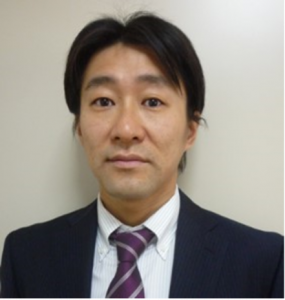
Yuji Teramura is a Senior Researcher of Cellular and Molecular Biotechnology Research Institute (CMB), National Institute of Advanced Industrial Science and Technology (AIST), Japan and also a guest Professor at Department of Immunology, Genetics and Pathology (IGP) in Uppsala University, Sweden.
He is a researcher with over 10 years of experience in an interdisciplinary research area of engineering and medicine since he received Ph.D. from Waseda University in 2004. With his original research background in polymer chemistry, he has contributed to biomedical engineering research projects such as bioartificial blood and bioartificial pancreas throughout his career. He has published more than 130 scientific papers. Since 2006 he worked at Kyoto University as an Assistant Professor at Institute for Frontier Medical Sciences together with Prof Hiroo Iwata. And with a grant from Japan Society for the Promotion of Science (JSPS), he worked at IGP of Uppsala University as a visiting researcher with Prof. Bo Nilsson since May 2010. Then, he was recruited to join the ‘StemTherapy’ project together with Prof Jöns Hilborn and Prof. Bo Nilsson. He got an Associate Professor position from Department of Bioengineering in the University of Tokyo in 2013. He became an Associate Professor (Docent) at IGP in Uppsala University since 2017, and also a guest Professor since 2019. He joined AIST since 2021.
Yuto Kitamura, Professor, UTokyo
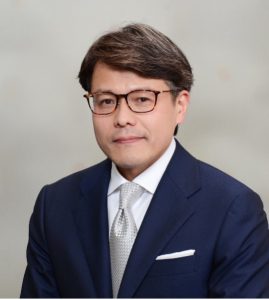
Yuto Kitamura is Professor at Graduate School of Education, The University of Tokyo. He received his Ph.D. in Education from UCLA. He has worked at UNESCO in Paris and taught at Nagoya University and Sophia University. He was the Fulbright Scholar at the George Washington University. He is currently Member of the Board of Education at Tokyo Metropolitan Government, Associate Member of the Science Council of Japan, and Special Advisor to the Rector at Royal University of Phnom Penh in Cambodia. He is specialized in comparative education and has been conducting his researches extensively on education policy of developing countries, particularly in Southeast Asia. He was awarded the JSPS Prize in 2018, one of the highest honors for young scholars in Japan.
Shu Takagi, Professor, UTokyo
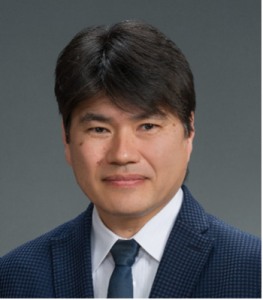
Shu Takagi is a Professor at Department of Mechanical Engineering and Department of Bioengineering, The University of Tokyo, since 2010. His areas of expertise include numerical simulations and experimental investigations on dispersed multiphase flows, especially bubbly flows and blood cell flows, medical ultrasound, hierarchical integrated simulation of human body, micro-scale heat transfer, molecular thermo-fluid mechanics and multiscale analysis of thermo-fluid phenomena. Takagi has written over 20 review articles including Annual Review of Fluid Mechanics and has given more than 30 keynote lectures in conferences. Takagi received his Ph.D. (1995) in Mechanical Engineering from the University of Tokyo. He first held the position of Research Associate at The University of Tokyo (1995- 1996) and Tokyo Institute of Technology (1996-1998) and then became an Assistant Professor (1998-2002) and Associate Professor (2002-2010) at Department of Mechanical Engineering the University of Tokyo. He was a Visiting Researcher at The Johns Hopkins University 1992-1993 and 2000-2001. He also worked as a Team Leader at RPCS, Organ and Body Scale Team, RIKEN (2007-2012).
Yaerim Lee, Assistant Professor, UTokyo
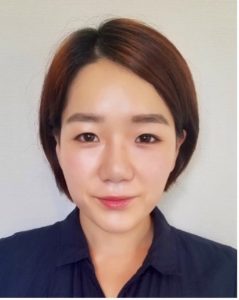
Dr. Yaerim Lee is an assistant professor in the Department of Mechanical Engineering, School of Engineering, The University of Tokyo, where she has been since 2019. She graduated from the Nagoya Institute of Technology with a B.S. in 2011 with the support of the “Japan-Korea Joint Government Scholarship Program for the Students in Science and Engineering Departments”. She received her M.S. (2013) and Ph.D. (2017) in Engineering from The University of Tokyo in 2013 and received a Ph.D. in Engineering from the University of Tokyo with research specialty in periodic metallic plasmonic nanostructures, and their applications for optical sensors/devices. Her current research interests include 1) understanding of dynamic wetting in terms of scales and regimes using micro-nano structures with controlled surface wettability, 2) water condensation and freezing phenomenon for thermal management applications, 3) thermoelectric energy harvesting devices, 4) nano-scale liquid-solid contact line measurement with optical technique.
Timothée Mouterde, Lecturer, UTokyo
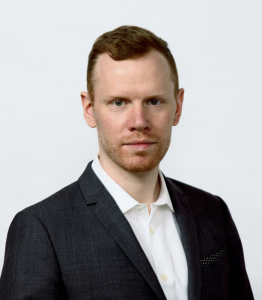
Dr. Timothée Mouterde is a Lecturer in the Department of Mechanical Engineering of the University of Tokyo. His main research interests are nanofluidics, soft matter, and wetting of micro/nano structured materials. He received his Ph.D. from the École polytechnique (France) for his work with David Quéré on nanostructured antifogging surfaces. Then he joined ENS Paris as a postdoctoral fellow in the group of Lydéric Bocquet, he focused on experimental study of water and ions transport in angstrom scale channels in collaboration with Radha Boya and Andre Geim. Before being appointed to his current position, he joined the University of Tokyo in the group of Takuro Ideguchi to develop new optical techniques to study nanofluidics.
Kensuke Fukushi, Professor, UTokyo
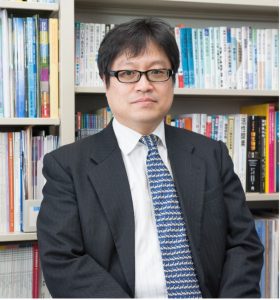
Kensuke Fukushi is an Academic Programme Officer at the United Nations University Institute for the Advanced Study of Sustainability. He is also Professor and Vice Director of the Institute for Future Initiatives (formerly Integrated Research System for Sustainability Science, IR3S), The University of Tokyo (UTokyo).
Kensuke is a civil-environmental engineer and holds appointments at the UTokyo Graduate Schools of Engineering and Frontier Sciences, where he organizes the Urban Sustainability Science Laboratory. He is one of the founding faculty members of IR3S and achieved remarkable progress in promoting sustainability science in various academic communities. He serves as an Editorial Advisor of Sustainability Science Journal, the Science Planning Group member of Asian Pacific Network for Global Change Research, and Distinguished External Faculty member of Asian Institute of Technology. He received B.S. and M.S from Tohoku University in Civil Engineering, and Ph.D. from University of Utah in Civil Engineering.

